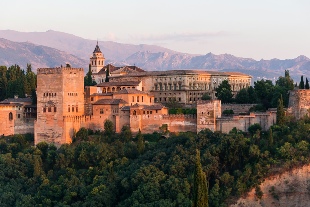
|
s a Brit who has lived in Spain for almost a decade, I must take issue with Zoe Strimpel’s
recent article arguing that it’s the ‘worst country […] in western Europe’, at least
as a holiday destination. My four years in Granada and almost five in Malaga have
shown me that it’s the best place in western Europe to live – but not because of
anything to do with ‘progressive’ politics or a Gen- The ‘buzzing terraces’ that Strimpel praises for distracting customers from horrible tapas aren’t just for tourists – they’re an integral part of the Spanish lifestyle. Life in Spain is lived outdoors, not shuttered away in heated rooms, hiding from the cold and rain. This means that people aren’t isolated in the way they tend to be in countries with harsher weather. Spanish streets and squares are noisy, friendly places, where you hardly ever see violence or drunkenness. And because the cost of living is generally low, especially in the south, you can live well without the pressure of having to pull in a huge salary. It is often said – usually by northern Europeans, Brits, and Americans – that Spaniards are lazy. And they seem to have a point. Employees in shops, banks, and even hospitals leave their stations for breakfast around 10 a.m.; high street shops close on Saturday afternoons, Sundays, and for three hours in the middle of every weekday; banks, administrative buildings, and post offices are never open past 2 p.m., and local bus services often don’t operate at weekends. Most towns and villages are deserted between 2 p.m. and 5 p.m., during which period everyone knows to respect the siesta hour. Such things can be frustrating, especially for expats accustomed to cities where
anything is available at any time. But these customs aren’t due to laziness. They
show, rather, that Spaniards don’t prioritise work above everything else. Equal importance
is accorded to socialising with friends and family, especially during the week- The lamentable state of Spanish politics won’t make any difference to a holiday in Spain, though. If you’re inwardly fuming at Vox or Pedro Sanchez as you trek through the mountains of Granada’s Sierra Nevada, swim off the wild |
|
|
beaches of Cadiz, or wander amongst the arches of Cordoba’s Mezquita, it’s not because political nastiness has contaminated every aspect of society. It’s because you need a serious break from reading the news. I do agree with Strimpel on two points, though, the first of which regards politics.
Spain is, as she says, ‘nasty’ in this respect. As in many other European countries,
a so- I also agree to some extent with Strimpel about Spanish food. Yes, it can be oily
and carb- Speaking of cities, Strimpel says she finds Spain’s offering ‘dire’. Even allowing
for the subjectivities of taste (and the presence of foul- Finally, I sympathise with Strimpel’s dislike of bullfighting. But of course, if you’re opposed to it, you don’t have to go. One reason I moved to southern Spain was to be able to attend bullfights frequently – although, like everyone else who regards themselves as an aficionado, I go to witness art, not ‘bay’ for blood. Whether I am thrilled or disgusted by what occurs in the ring, though, it always makes me feel; and sometimes on those strange, intense afternoons, I love Spain more than ever. |


